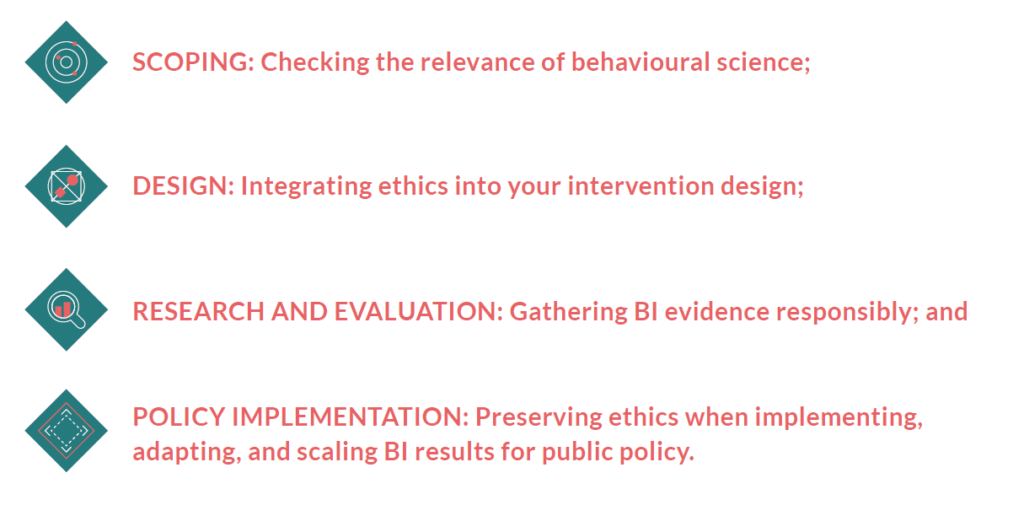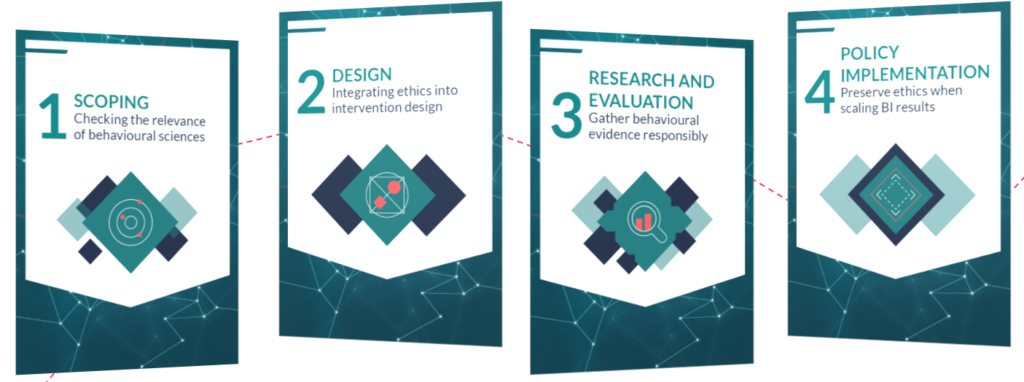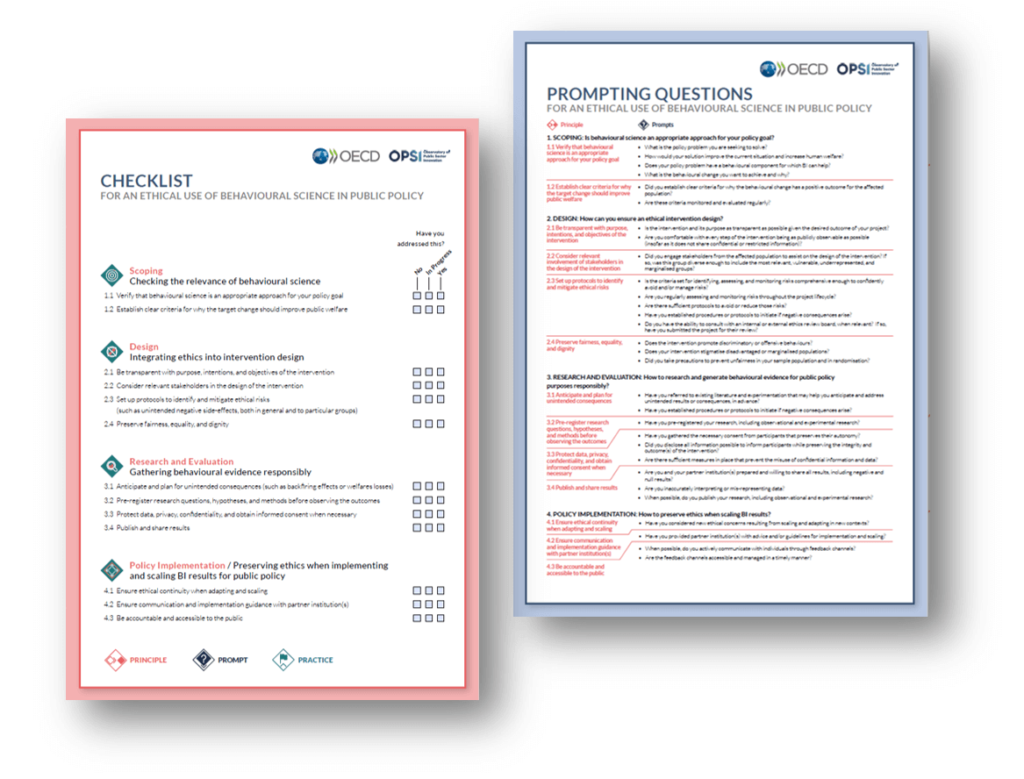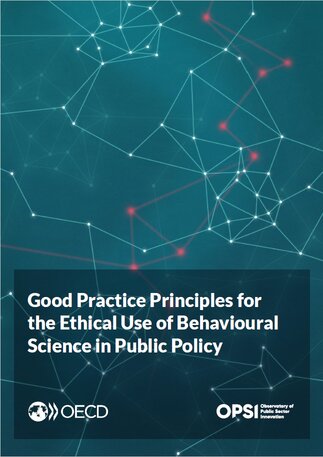Responsible by Design – Principles for the ethical use of behavioural science in government

Introduction
The use of behavioural insights (BI) in public policy has grown over the last decade, with the largest increase of new behavioural teams emerging in the last five years. More and more governments are turning to behavioural science – a multidisciplinary approach to policy making encompassing lessons from psychology, cognitive science, neuroscience, anthropology, economics and more. There are a wide variety of frameworks and resources currently available, such as the OECD BASIC framework, designed with the purpose of helping BI practitioners and government officials infusing behavioural science throughout the policy cycle.
Despite the availability of such frameworks, there are less resources available with the primary purpose of safeguarding the responsible use of behavioural science in government. Oftentimes, teams are left to establish their own ethical standards and practices, which has resulted in an uncoordinated mosaic of procedures guiding the international community interested in upholding ethical behavioural practices. Until now, few attempts have been made to standardize ethical principles for behavioural science in public policy, and to concisely gather and present international best practices.
In light of this, we developed the first-of-its-kind Good Practice Principles for the Ethical Use of Behavioural Science in Public Policy to advance the responsible use of BI in government.
Good Practices Principles: A guide
Designed in direct response to the needs of the international BI community working in government, this guide seeks to provide a starting point upon which users are encouraged to extend upon, according to their unique needs and objectives. It can be applied to adapt to the applications of a range of functions and operations, whether you are relying on existing evidence, testing new policy interventions, or scaling results in real-world scenarios. As a guide outlining the most common ethical considerations associated with behavioural public policy specifically, it remains applicable to a range of policy areas, while also providing the means to dive deeper into the specificities of your team’s goals and expertise.
An Agile Guide for an Agile Approach
Recognizing that behavioural science serves an assortment of governmental needs, the guide is written intentionally to adapt to the unique mandates of today’s BI teams. From policy ideation to policy implementation, this resource is designed to reflect the cyclical nature of policy systems and procedures. The guide is divided into four sections:


The Three-P-Approach
We worked with behavioural scholars, experts, and practitioners to identify the ways BI is applied in government today and developed the Three-P-Approach to take users from abstract ethical concepts to concrete actions that can be embedded at any and every stage of the behavioural policy cycle.

Each of the four sections are broken down further to elaborate on relevant principles and practices. We first begin by outlining the ethical principles, followed by prompting questions to inspire further discussion, followed by practices, which offer concrete actions to uphold the ethical principles. Finally, we include real-world examples and case studies demonstrating how BI teams around the world are applying BI in government effectively and responsibly.
Complementary Resources: Checklist & Prompting List
In addition to the full guide, we offer users with two additional practical resources. Firstly, is the checklist – designed for anyone to check the most important ethical pitfalls and challenges when using behavioural science in government. Secondly, there is the list of prompting questions designed to inspire a deeper discussion relating to the way ethics can be preserved when applying behavioural science to public policy.

Learn more
Are you working in a specific policy area and are curious to learn more about targeted applications of the framework? Reach out to us today and find out how we can co-create a personalized ethics guide for your team.
Interested in joining the OECD’s Network of behavioural insights experts in government? Send us a message to learn more about the benefits of joining the network.
Contact: Chiara Varazzani, OECD Lead Behavioural Scientist – [email protected]
Looking to explore behavioural science applications in government?
- Visit the OECD Behavioural Insights Unit Map to learn more about the BI teams across the world embedding behavioural science within their policy processes. You can also add your team here.
- Visit the OECD Behavioural Insights Project Repository to see how these teams are leveraging behavioural methods to achieve their policy objectives. You can add your completed projects here.
- Visit the OECD Pre-registration Portal to upload your ongoing projects and share your research and outcomes with the larger behavioural insights community at the most critical stages of your behavioural research.

Responsible by Design – Principles for the ethical use of behavioural science in government
Published on 30 June 2022. Revised on 5 October 2022.
